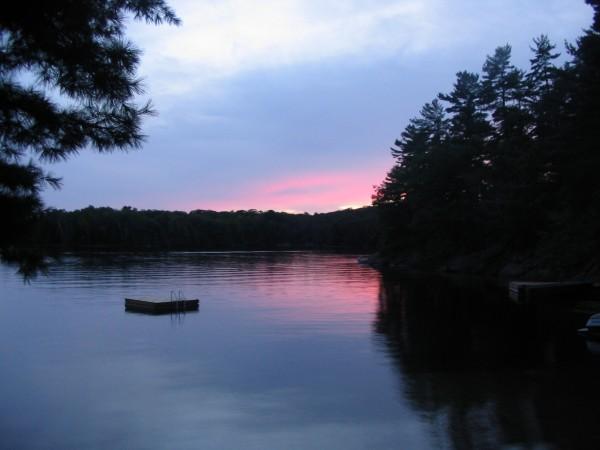“In nature I find and connect with a divine presence… experiencing nature is the closest that I ever come to feeling, even seeing God."

My father was not much of a churchgoer. I still vividly recall him putting dollops of pancake batter onto a sizzling griddle, or devouring the weekend newspaper, on Sunday afternoons when I came home from singing in the local church youth choir. But my father is a deeply spiritual individual. A research scientist by profession, he believed that faith and nature are incredibly intertwined—and we have nothing short of a calling to care for the earth.
An immigrant from the UK who remains passionate about Canada’s unspoiled spaces, my father instilled important environmental lessons. He taught me that our lands, fresh waters, forests, and the creatures that inhabit these places, are a gift: one that we are trusted to protect for future generations.
I grew up seeing what it meant to be a good steward of this planet. My father quietly led environmental efforts, such as raising the alarm about acid rain on the lake that was home to our cottage. As a kid, I cringed at being part of the only family in my suburban neighbourhood to have a composter in the backyard. I’d check to make sure no one was watching as I slipped putrid banana peels and soggy coffee grounds into the bin tucked under a lilac bush.
My dad’s legacy is evident in every declaration to my own kids that the very future of our planet depends on them remembering empty paper rolls go in the blue bin, not the garbage.
For me, it is no coincidence that Earth Day (always marked on April 22) falls on a Sunday this year.
Sunday, of course, is the day when many of us go to church and are encouraged reflect on our faith and accompanying values. (See The United Church of Canada’s 2018 Earth Day service online.) To this my father would say, it is how we live each day that speaks most loudly of our ethics. Still, the United Church’s commitment to environmental issues and eco-justice was a strong factor that pulled me back into church in my early 30s.
In nature I find and connect with a divine presence. Indeed, there is a growing body of research that reveals meandering through forests or fields is a type of therapy. A respite and balm for our urban-weary, spirit-starving souls.
I admit that experiencing nature is the closest that I ever come to feeling, even seeing God. As A Song of Faith says, “God is Holy Mystery.” Nature, too, awes us with glorious sunsets that rival the hues of tropical fruit cocktails. She humbles us with torrents of rain and sheets of sleet that force us to abandon our plans and remind us of our small place in the universe.
A friend who lives in northern Ontario recently posted a photo on social media that emphasized nature’s hushed sense of sanctuary. The image, taken out her back door a week ago, showed a serene pathway into the wood. It was lined on both sides with soaring evergreens arching inward toward one another under the weight of pristine snow that looked like some sort of giant creature’s glittering pixie dust. “This is my cathedral,” she wrote.
A Song of Faith captures the magic of nature in its poetry: “[We find] ourselves in a world of beauty and mystery, of living things, diverse and interdependent, of complex patterns of growth and evolution, of subatomic particles and cosmic swirls.”
Let’s make every Sunday Earth Day so we never forget our sacred call to care for the natural world and all its wonders.
—Kathryn Dorrell is the senior editor in the Communications Unit at the General Council Office.